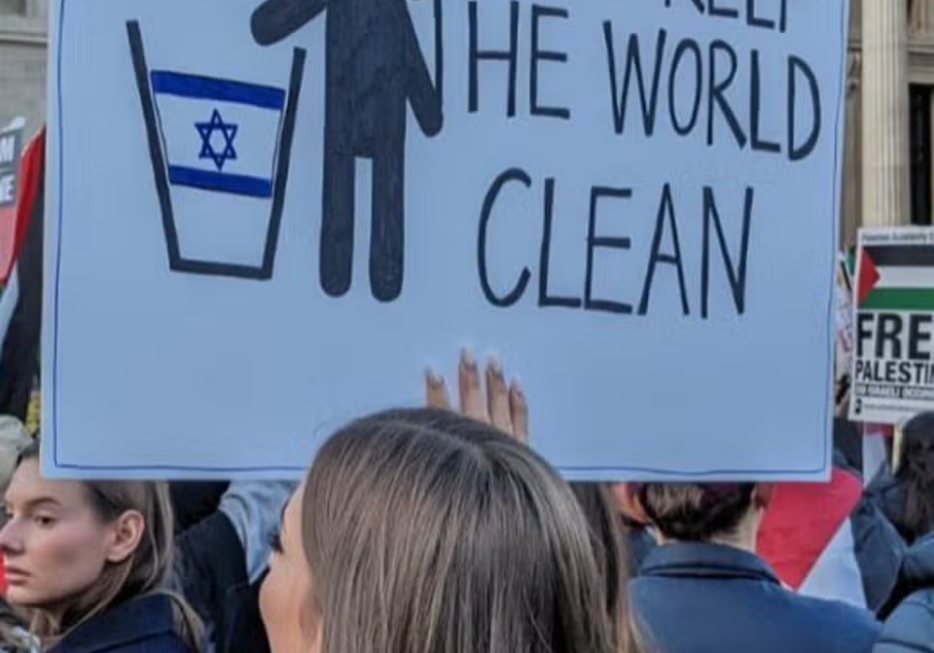Australia/Israel Review
The Long Road to Annapolis
Nov 1, 2007 | Amotz Asa-El
Context and Constraints
By Amotz Asa-El
 |
| Shaky Ground: Olmert and Abbas are hampered by domestic constraints |
Annapolis connotes revolution. While more famous for its naval academy, the city to Washington’s east was also where a meeting of revolutionaries in 1786 laid some of the groundwork for the following year’s Constitutional Convention, and where the houses of several signers of the US Declaration of Independence still stand.
It may well be that this record inspired George Bush and Condoleezza Rice when they decided to locate a potentially groundbreaking Middle Eastern meeting – they have avoided calling it a ‘summit’ – in the quaint town whose main physical hallmarks are several dozen colonial-era buildings. Yet with the approach of the northern autumn – the originally announced timing of the conclave – doubts accumulated over the event’s structure, aims and prospects.
As of this writing, the general impression is that the event, which media reports said was initially planned for the last week of November, will be delayed to December, and maybe even until after Christmas. Meanwhile, participation in the meeting is apparently shrinking and depreciating. Syria has already said it will not show up, Egypt remains doubtful, the Saudis have yet to heed American pleas to take part, and Israeli Prime Minister Ehud Olmert has assigned Foreign Minister Tzipi Livni to head the Israeli delegation, meaning it will not be led, at least initially, by heads of government. As for the substance of the meeting, initial talk of a major deal over the explosive issues of Jerusalem, refugees and final borders has given way to hints that the delegations will make do with a general declaration about broad aims, one that will avoid details and specific practical commitments.
The original impression that something bold was brewing stemmed from the importance Washington has placed on the summit and on a series of one-on-one meetings between Olmert and Palestinian President Mahmoud Abbas. Public pronouncements the two have made, like Olmert’s statement that back in 1967 Israel may have been mistaken in annexing some Arab neighbourhoods to Jerusalem, and Abbas’ that the Palestinians expect an area equivalent in size to the entire West Bank and Gaza, enhanced the impression that the two are already at an advanced stage of negotiation.
Yet while the two men have evidently struck a relationship of mutual respect and even chemistry, highlighted by Abbas’ visit to Olmert’s tabernacle during the festival of Sukkot, the two realise they are not working in a vacuum, and that constraints surrounding them are such that expectations for an historic breakthrough had better be lowered.
Abbas’ limited room for manoeuvre is well known. For him, to sign a deal that formally gives up on the idea of Palestinians being allowed to come from around the world and relocate to pre-’67 Israel means war with Hamas and other extremist factions. The Palestinian president’s capacity to compromise on Jerusalem is not much stronger. Judging by his political reluctance to confront Hamas until now, and the military weakness he displayed once the Islamist organisation confronted him, chances are low that Abbas will suddenly reinvent himself and emerge as the kind of resolute risk-taker he has never been.
Moreover, even if Abbas chooses to cross the Rubicon while abroad, and then flex his muscles at home, chances are the world will learn that Abbas’ following among the Palestinians is much more limited than the following he won when they elected him as Yasser Arafat’s successor – for the prosaic reason that back then Hamas did not field a candidate of its own. Since then the Palestinians have been given two chances to vote Hamas; in last year’s municipal and parliamentary elections. Hamas emerged from these contests decidedly victorious.
While subsequent events have caused some disillusionment among Hamas’ voters, there is no evidence that the Palestinian public is ready to follow Abbas’ lead into an historic deal that would formally end the Arab-Israel conflict. If anything, there is reason to suspect that elements of the Palestinian street will respond violently should Abbas make even the most minimal concessions which are prerequisites for a deal – even given the most accommodating leader conceivable in Israel.
Olmert’s problems are not much less daunting. Though he does not face the prospect of the kind of violent blitz that Hamas has handed Abbas in Gaza, he faces a legal siege that no one is contemplating against Abbas. Israeli prime ministers have repeatedly faced legal issues since the mid-1970s. Of those, the most severe suspicions were levelled against Ariel Sharon, which involved the alleged receipt of large sums of money from private people, both Israeli and foreign, as part of illegal campaign financing.
Legally, the allegations Olmert faces are less damning. His problem is that the suspicions against him are more numerous and varied.
Olmert is suspected of concocting, as finance minister, improved tender conditions for a potential buyer of Israel’s second largest bank; dealing jobs as minister of trade and industry to his cronies; buying, as the former mayor of Jerusalem, a high-end property in the city’s most quaint neighbourhood well under market prices; and manipulating a program of aid for industrial investments in order to reward a friend. Now, Israeli Attorney-General Menachem Mazuz has ordered police to investigate all these allegations in a set of separate decisions, each of which constituted a further blow to Olmert’s already low popularity.
Ironically, these setbacks caught Olmert just when his approval ratings were finally reaching double-digit figures, following the Israel Air Force’s reported demolition of a nuclear installation in northeastern Syria. The televised scene of police officers arriving at Olmert’s office, where they spent hours grilling him, is pretty much the antithesis of what an Israeli leader needs before potentially negotiating national assets as explosive as Jerusalem’s Temple Mount. Add to that Olmert’s lack of the aura with which Sharon came to his own territorial concessions – the aura of the warrior, pioneer and settlement builder – and you get an Israeli leader arriving at Annapolis little less crippled than his Palestinian counterpart.
None of this reality escapes Olmert’s assorted political adversaries, both within and beyond the ruling Kadima party.
Within Kadima, Olmert’s main aim is to nurture a kind of industrial calm so he can at least keep that front quiet while confronting external challenges. That is why he gave his most potent rival-from-within, Foreign Minister Livni, the opportunity to use Annapolis to further raise her already high profile, both domestically and internationally. From Olmert’s viewpoint it is a risk worth taking, since in the case of success he believes he will be credited with the daring it entailed. Meanwhile, in the case of failure, some of the burden will have to be shared by the woman whose approval ratings indicate she is the only one in Kadima in a position to rival Opposition Leader Binyamin Netanyahu.
Another contender, Internal Security Minister Avi Dichter, has sidelined himself, first by deciding to back Olmert at least tactically, then by publicly suggesting that prime ministers should not be investigated while incumbent, “so they can function as leaders.” That proposal was universally ridiculed, while as a political move it raised eyebrows across the parliamentary spectrum, and pretty much suspended all talk about the former head of the Israeli secret service being prime ministerial material.
Yet even with Dichter stranded and Livni caged, Olmert still faces a potent rival from within his faction, in Lt.-Gen. (res.) Shaul Mofaz, the former IDF chief-of-staff who later served as Ariel Sharon’s minister of defence, before Olmert demoted him to transport minister. Mofaz has never forgiven this slight, despite the coalition constraints that occasioned it. Now Mofaz, an Iranian-born and self-made representative of the social periphery (whereas Olmert is sometimes seen as part of the plutocratic elite), has made it plain that he will not allow the prime minister to go too far at Annapolis. “Jerusalem,” he told Israel Radio, “is not real estate.”
Mofaz is not alone. With him will be standing Olmert’s right-wing coalition partners, led by the ultra-Orthodox Shas. Though this party’s spiritual authority, Rabbi Ovadia Yosef, ruled years ago in favour of the principle of land for peace, the party’s electorate – a tenth of the public – remains hawkish in general, and suspicious of the Palestinians in particular. At the same time, the party has so far been Olmert’s most loyal and stable coalition partner. Now its political leader, Trade and Industry Minister Eli Yishai, has come out saying that Abbas represents “but a third” of the Palestinian people, and as such cannot be a partner for a deal. This means that Olmert’s already limited room to manouevre has become so narrow within the coalition, it has shrunk to almost nothing. Every step risks a fall into the political abyss.
Similarly, Olmert must also consider another coalition partner, Avigdor Lieberman, whose predominantly Russian and secular electorate is markedly different than Yishai’s, but no less, and often more, hawkish. Lieberman, who serves as Olmert’s strategic affairs minister, now says that the only way he will consider territorial concessions is that they be made as part of a broader swap involving areas populated by Israeli Arabs. Israeli Arab leaders for now refuse to even academically consider such proposals, which would turn them from citizens of Israel into citizens of Palestine.
Evidently, the American quest to entice the Israelis and Palestinians into the swift conclusion of at least the bare-bones of an historic deal is proving much more painstaking than initially hoped. It may have been different had Abbas’ grip on Palestinian society been more solid and Olmert’s encounters with law enforcers been less pervasive an ongoing worry. It remains to be seen if even Annapolis’ revolutionary inspiration can offset this problematic reality.
![]()
Tags: Israel






